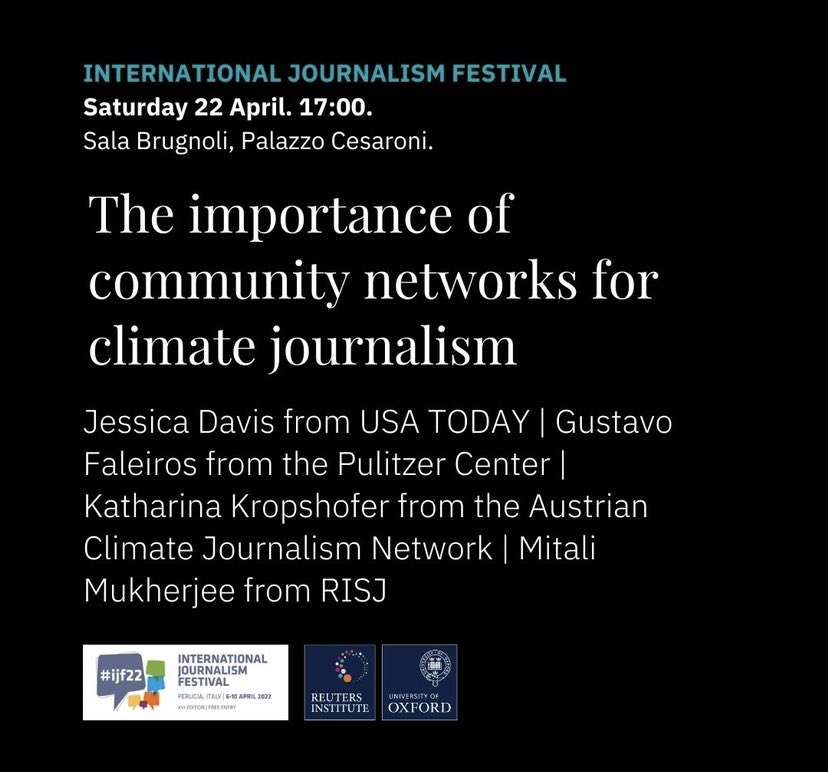Kicking off this #ijf23 panel on the business of news. Chaired by our own @rasmus_kleis, it features @MelissaBell from @voxdotcom @StyliChara from @dailymaverick and Cécile Sourd from @Mediapart
📺 Watch live journalismfestival.com/programme/2023…
🧵 Key points in thread
📺 Watch live journalismfestival.com/programme/2023…
🧵 Key points in thread

"It's not that news publishers are finding hard to convince people their content is worth paying for. It's that news publishers are finding hard to convince people their content is worth paying attention to," says @rasmus_kleis #ijf23
Figures from France's @Mediapart shared by Cécile Sourd:
-220K subscribers
-98% of revenue coming from readers
-it's been profitable for 11 years
-neither ads nor subsidies
-no commercial agreements with the platforms #ijf23
-220K subscribers
-98% of revenue coming from readers
-it's been profitable for 11 years
-neither ads nor subsidies
-no commercial agreements with the platforms #ijf23
Cécile explains that in 2019 @Mediapart founders put their shares into a nonprofit inspired by @guardian Scott Trust gijn.org/2022/03/16/fra…
At @Mediapart they've created a weekly show on Twitch, Cécile Sourd says. They are trying B2B subscriptions and also trying to build financial reserves in case they need to create a totally different revenue model
"Our newsroom and our investigations have grown since we launched our membership model," @StyliChara from @dailymaverick #ijf23
Here's a piece on their model from 2020 membershipguide.org/case-study/how…
Here's a piece on their model from 2020 membershipguide.org/case-study/how…
"You have to start with your value proposition. What is unique about what you do? We settled on explanations. But when thinking about how to support that, we quickly realised that we needed to diversify our revenue streams," says @MelissaBell from @voxdotcom #ijf23
"When people become members, they tell us what's their superpower. Then we can call on them when we need that expertise. Sometimes they even propose or moderate panels," says @StyliChara from @dailymaverick. Spanish fact-checker @maldita also does this #ijf23
"We are turning 10 in April 2024, and thinking about how to distinguish ourselves in a sea of explainers. We can do at least 2 things: give people a friendly space where they don't feel inundated with noise and find undercovered topics," says @MelissaBell from @voxdotcom #ijf23
"We have a lower price for people who can't afford a full subscription. As for giving away content, we rely on subscriptions so we can't go too far. But we have a free show on YouTube. Many young people discovered us through that show," says Cécile Sourd from @Mediapart #ijf23
"A lot of the problems we see with news avoidance come from people who feel disempowered by the news. Even if they are not paying attention, they feel this constant sense of defeat. A friendly voice on a podcast can overcome that feeling," says @MelissaBell from @voxdotcom #ijf23
"I think we journalists should change our mindsets. We shouldn't just tell what happened but educate people about the world and about what to do to fix it," says @MelissaBell from @voxdotcom #ijf23
• • •
Missing some Tweet in this thread? You can try to
force a refresh

 Read on Twitter
Read on Twitter
















